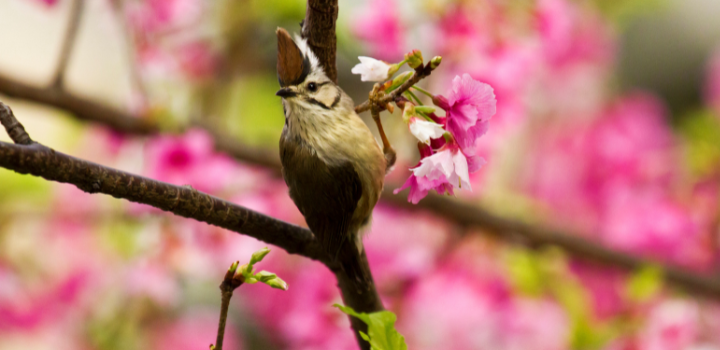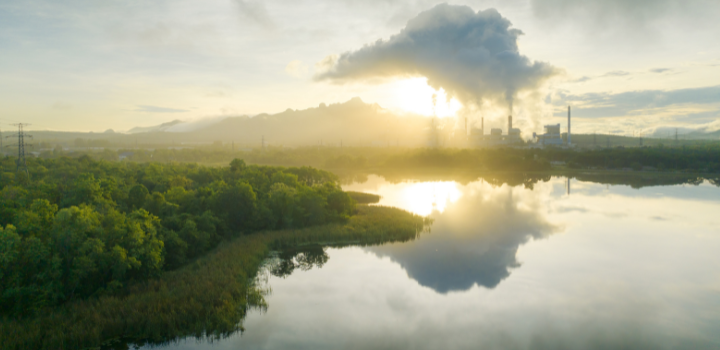Mindfulness course addressing student eco-anxieties set to return to UEA campus
By: Communications

A course focused on managing climate and eco-anxieties in students will return to the University of East Anglia (UEA) for another year.
As the international community gears up to attend COP28 in the United Arab Emirates, the next United Nations climate change conference, the urgency of addressing climate change has been pushed to the forefront.
Against this backdrop, UEA is set to reintroduce its ‘Mindfulness and Active Hope’ course in January 2024, to help empower individuals with tools to navigate their eco-anxieties. The course focuses specifically on how to draw on mindfulness skills to help adjust to a rapidly changing world, in the face of climate change, loss of biodiversity and global unrest.
Beginning again on Thursday 25 January, the course is free to attend and will run between 5pm and 7pm every Thursday for nine weeks, with sessions held at Earlham Hall on the UEA campus, Norwich.
Azza Dirar, a UEA PhD graduate who now works at Norfolk and Waveney Mind for the sUstain project, spoke about her experience on the course last year:
“I couldn’t have fully predicted how profound and transformative the course would be.
“Prior to the course, I had already been exposed to Joanna Macy’s work and experienced the transformative effects it had on a sense of despair and hopelessness. Coming across this work in my time as a postgraduate researcher was lifesaving, but experiencing it through this course with other students and researchers was a deeply transformative gift of connection.
“In my opinion, the course fills a huge gap in the way we currently engage with climate change as students and researchers. The focus is not on the overwhelming bleak evidence of climate change and environmental degradation, but rather on how we can act with courage and wisdom during a time of looming ecological and societal collapse.”

Image: Azza Dirar (left) with students at one of last year’s ‘Mindfulness and Active Hope’ planning sessions at UEA (credit: Norfolk and Waveney Mind)
The seven-week programme, which is part of the wider sUStain project – a partnership between Norfolk and Waveney Mind, UEA, the Climate Psychology Alliance (CPA) and other partners – is intended for those interested in learning the practices and developing the capacity for Active Hope. The course is open to students and researchers, with staff joining a reserve list dependent on the number of students who apply to take part.
Jess Chapman, a postgraduate researcher with UEA’s School of Environmental Sciences and member of the Tyndall Centre for Climate Change Research, took part in the Active Hope programme last year. One year on, she has now chosen to volunteer for the 2024 course and speaks about its positive impact:
“I found the Active Hope course to be transformative – both personally and as a PhD researcher working in the soil degradation space.
“Engaging in this six-week programme revitalised my sense of agency, resilience and empowerment through reimagining my relationship with hope. The course goes beyond just dealing with eco-anxiety associated emotions – such as fear and grief – by offering a space to transcend isolation, disentangle thoughts and connect with others meaningfully.
“The course commitment doesn’t feel like a chore at all, rather more of an invitation to attune to and explore eco-anxiety in a compassionate and embodied way. I would unequivocally recommend Norfolk and Waveney Mind’s Active Hope course to students, staff, and individuals alike. Its ideas are poignant reminders and gifts that echo a much larger psycho-cultural change.”
Active Hope is a concept by resilience expert Chris Johnstone and eco-philosopher Joanna Macy, described as “about becoming active participants in bringing about what we hope for” and aligning our vision with our actions amid uncertain circumstances.
The course aims to:
-
Cultivate greater calm, appreciation and self-care, even amid surrounding crises
-
Explore a range of simple practices which help us thrive, with a sense of agency, in response to difficulty
-
Re-discover our innate wisdom in the face of strong emotions
-
Understand how to authentically transform fear, despair and anxiety to foster Active Hope
This year, Norfolk and Waveney Mind are once again looking to recruit UEA student volunteers who are passionate and curious about the climate crisis, to help co-design and co-facilitate the Active Hope course. These volunteers help to cater the course to best meet the needs of the people attending, to ensure the course is co-created by students for students.
UEA graduate Laura Angélica Triana Africano said: "The course was truly insightful, offering invaluable strategies for managing anxiety and navigating chaos. I highly recommend it to everyone, even those without eco-anxiety, as it provides a fresh perspective on life.
"As a student volunteer involved in co-creating the course, I had the unique opportunity to actively contribute to its development, trying everything in advance and suggesting improvements. The group was dynamic and became a supportive community for me as an international student, which is something I’m really grateful for.
"Participating in this course has not only eased my eco-anxieties but also enriched my sense of community and purpose. I'm excited to see it return and positively impact others and let more people get the insights from this method."
The sUStain project, which initially started in March 2022, offers a range of support around eco-anxiety and climate grief in addition to the Active Hope programme, such as awareness events to normalise concerns and creative workshops to express these themes.
There are also monthly ‘Climate Café’ drop-ins, co-facilitated by UEA students and open to all, which are continuing into 2024 as a safe space for attendees to share their thoughts and feelings on the topic of climate change.
Related Articles

‘Energy efficiency’ key to mountain birds adapting to changing environmental conditions
Research led by the University of East Anglia (UEA) sheds new light on how mountain birds adapt to changes in climate.
Read more
Temperature of some cities could rise faster than expected under 2°C warming
New research led by the University of East Anglia (UEA) shows how many tropical cities are predicted to warm faster than expected under 2°C of global warming.
Read more
Land-intensive carbon removal needs better siting to protect biodiversity
Significant reliance on land-based methods of carbon dioxide removal can protect biodiversity by avoiding climate impacts - but it could also compete with biodiversity protection unless there is better site selection, according to a new study.
Read more